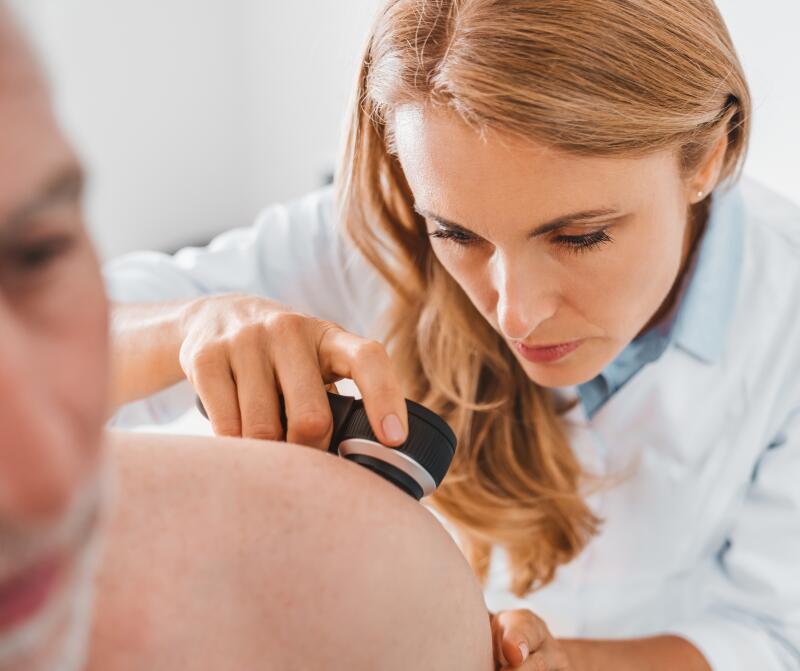-
Your concerns
Our articles to help you gain a better understanding
-
Our solutions
-
DUCRAY Dermatological Laboratories
Our articles to help you gain a better understanding

A dermatologist is a doctor that specializes in the skin and its appendages (hair and nails). In this article, we explain why it is useful to consult a dermatologist in case of brown spots.
The dermatologist will carefully examine the patient’s skin and also conduct a full interview, to gain information about their background: pregnancy, hormone therapy, repeated sun exposure, etc.
They will assesses the impact of these brown spots on the patient’s quality of life.
The ABCDE method was developed to improve screening for the most serious skin cancers, called melanomas. A brown spot possessing certain characteristics, for example an asymmetry (A), irregular borders (B), inhomogeneous color (C), diameter greater than 6 millimeters (D), and/or which evolves over time (E) must alert the patient to the need for an emergency medical consultation.
Once the diagnosis of brown spots has been confirmed, the dermatologist can prescribe a treatment against hyperpigmentation. This will generally be a magistral preparation available from pharmacies and contain one or more depigmenting active ingredients. The dermatologist may also prescribe an anti-brown spot cream specifically formulated to fight brown spots, in addition or as a follow-up to treatment.
Against brown spots, the dermatologist will also provide prevention advice, in particular with regard to sun protection, which is essential in case of brown spots.
In case of brown spots, dermatologists can propose certain treatments performed directly in their office. The dermatologist can remove brown spots using a chemical peel, cryotherapy or even a depigmenting laser, as appropriate.
It is best to consult a dermatologist if you have brown spots and:
Hyperpigmentation